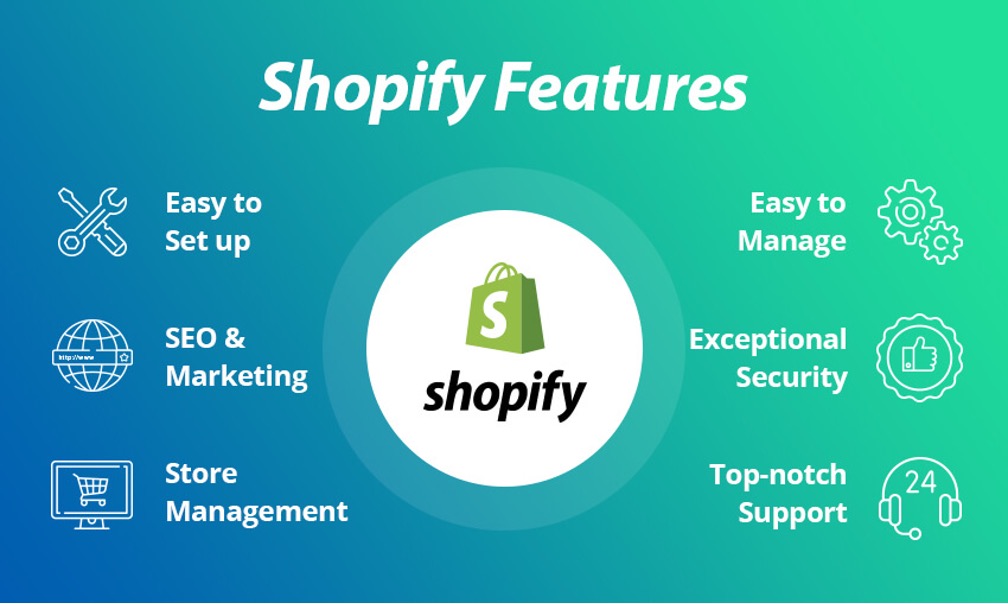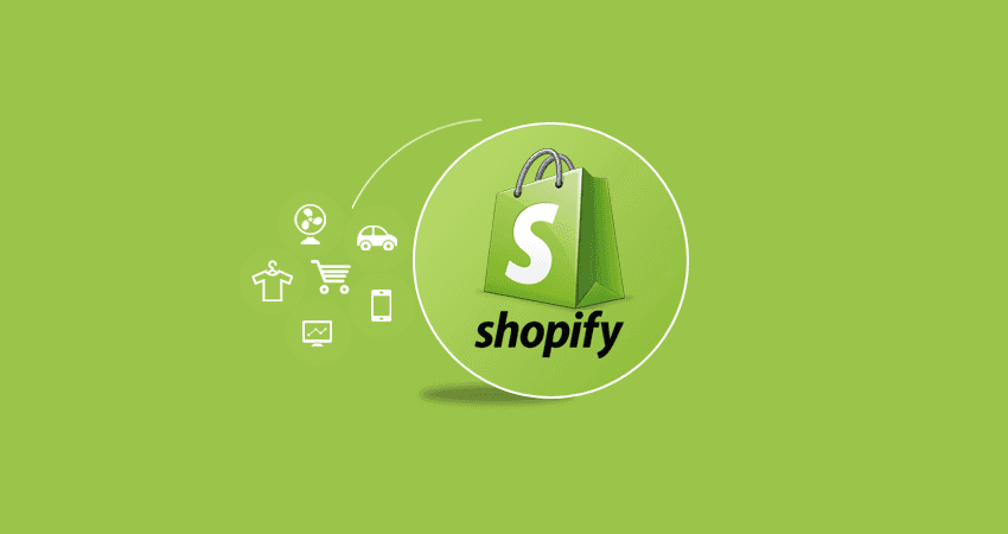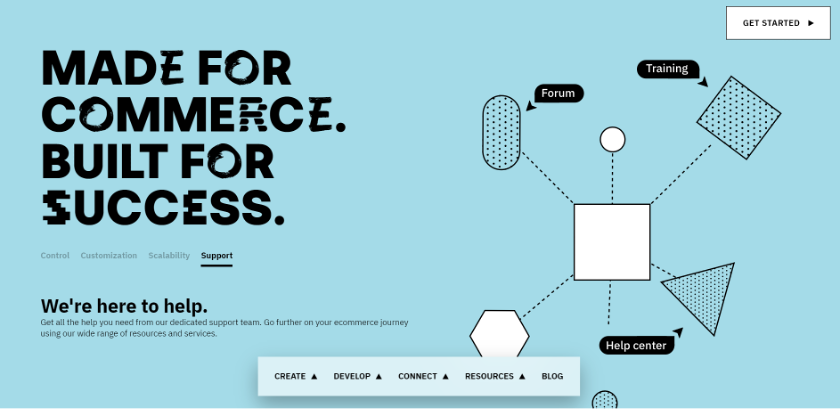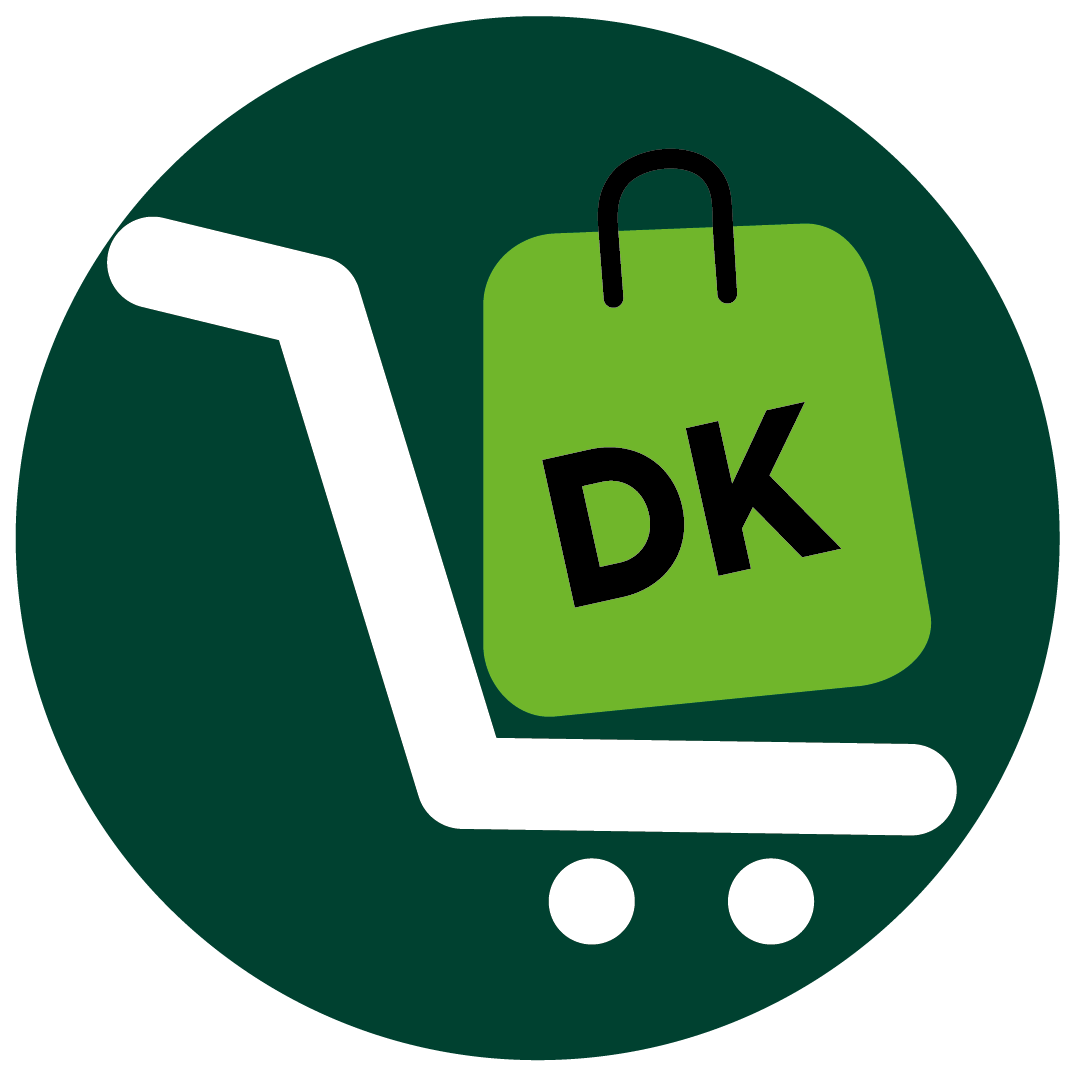Our Verdict
In the dynamic landscape of e-commerce platforms, both Shopify and PrestaShop have demonstrated their capabilities. However, based on a comprehensive analysis of their features, usability, and customer feedback, Shopify is seen as the more suitable choice for most businesses. While PrestaShop offers robust customization options, Shopify’s user-friendly interface, extensive app ecosystem, and reliable support make it an optimal solution for businesses of varying scales.
Shopify presents itself as an all-inclusive, user-friendly platform designed to simplify the e-commerce journey. Its intuitive interface allows you to set up your online store with ease, even if you lack technical expertise. The platform offers an extensive library of apps and themes, granting you the flexibility to tailor your store’s appearance and functionality. Shopify also excels in customer support, ensuring that assistance is readily available whenever you need it.
PrestaShop stands out for its elevated level of customization and control. For businesses seeking to exert precise control over their online store’s design and functionality, PrestaShop provides a rich array of tools and options. This platform is particularly well-suited for those with technical proficiency who wish to delve into the nitty-gritty details of their e-commerce site.
Why Choose Shopify

Who Shopify Is Best For
Go for Shopify if you:
- Manage Small to Medium-sized Businesses
- Want to establish an online presence quickly and easily.
- Do not have extensive technical knowledge.
- Desire to set up an online store and want a straightforward solution that will help you to manage products, and process orders.
- Do not have any coding or design skills
- Operate with limited budgets and resources.
- Need a platform that will help you with IT management such as server infrastructure or technical updates
Who Shopify Isn't Right For
Consider doing another platform if you:
- Run a large enterprise with complex needs
- Have extremely unique or specific customisation requirements
- Operate with extremely tight budgets and cannot afford its subscription fees and transaction costs.
- Need and place emphasis on advanced SEO
Why Choose Prestashop

Who Prestashop Is Best For?
Select Prestashop if you:
- Find comfort with handling technical aspects like server setup and maintenance.
- want a customizable e-commerce solution
- Are willing to invest time in tailoring their online store to unique requirements.
- Aim towards minimizing long-term costs.
- Target an international customer base.
Who Prestashop Isn't Best For?
Embrace other options aside from Prestashop if you:
- Are a non-technical users might find it challenging to manage.
- Seek for a fully managed hosting solution.
- Desire extensive customer support.
- Requires a rapid set up, customisation, and launching process.
Shopify vs Prestashop: Main Differences
Shopify | Prestashop | |
Ideal For |
| You if you:
|
Stand Out Features |
|
|
Shopify vs Prestashop: Standout Features
Shopify Standout Features

- Offers User-Friendly Interface: Shopify is known for its intuitive and user-friendly interface, making it easy for beginners to set up and manage their online stores.
- Provides Extensive App Store: The Shopify App Store offers a wide range of apps and plugins that allow you to add extra functionality to your store, such as marketing tools, inventory management, and more.
- Allows mobile commerce: Shopify provides a mobile app that lets you manage your store, process orders, and engage with customers from your smartphone.
- Offers Professional Templates: Shopify offers a collection of professionally designed templates that can be customized to create a unique and visually appealing online store.
- Guaranties Secure Hosting: Shopify takes care of hosting, security, and updates, allowing you to focus on your business without worrying about technical aspects.
- Provides Payment Solutions that Integrates seamlessly: Shopify Payments, along with support for third-party payment gateways, simplifies the payment process for both you and your customers.
- Helps you to Recovery Abandoned Cart: Shopify includes tools for recovering abandoned shopping carts, helping you convert more potential customers into actual sales.
- Ensures Scalability: Shopify scales well from small businesses to large enterprises through its different plans, including the advanced Shopify Plus for high-volume stores.
- Enables Multichannel Selling: Shopify enables you to sell across various channels, including your online store, social media, and marketplaces like Amazon and eBay.
- Provides 24/7 Customer Support: Shopify offers round-the-clock customer support through various channels to assist you whenever you need help.
PrestaShop Standout Features:

- Operates as an Open Source: PrestaShop is an open-source platform, allowing for extensive customization and flexibility in terms of design and functionality.
- Offers Multilingual and Multi-Currency Support: PrestaShop offers built-in support for multiple languages and currencies, making it suitable for international businesses.
- Provides Customization option: With access to the source code, PrestaShop provides advanced customization options for businesses with specific design and feature requirements.
- Does not require Ongoing Subscription Fees: Since PrestaShop is self-hosted and open source, there are no recurring subscription fees, making it cost-effective for the long term.
- Provides Community and Extensions functionality: PrestaShop has a strong community of developers and a marketplace for extensions and themes, allowing for the expansion of functionality.
- Offers SEO Features: PrestaShop offers SEO-friendly features, including customizable URLs, meta tags, and optimization options to improve search engine visibility.
- Ensures Responsive Design: PrestaShop templates are designed to be responsive, ensuring your store looks and functions well across different devices.
- Provides Advanced Shipping Options: PrestaShop provides various shipping options, including carrier integration, real-time shipping rates, and customizable shipping rules.
- Grants Self-Hosted Control: You have full control over your hosting environment, allowing you to optimize performance, security, and server configuration.
- Allows Community Support: While there might not be dedicated customer support, PrestaShop has an active community where users can seek help, share experiences, and find solutions.
Pros and Cons of Shopify

- Pros
- Offers User-Friendly interface with drag-and-drop builder that makes it easy for you even as a beginner to set up and manage your online store.
- Provides a wide range of apps and plugins to enhance your store’s functionality and features.
- Allows you to manage your store, process orders, and track performance from your smartphone.
- Provides a variety of professionally designed templates that you can customize to match your brand.
- Helps you to manage hosting, security, and updates, minimizing technical concerns for store owners.
- Offers integrated payment solutions like Shopify Payments, along with support for various third-party payment gateways.
- Develop tools that recover potentially lost sales through the use of reminder and nug customers about abandoned carts.
- Caters for you no matter your business sizes, which makes it easy for you to scale as your business grows.
- Allows you to sell across multiple channels, including social media and marketplaces, to expand your reach.
- Provides 24/7 customer support through various channels, helping you resolve issues quickly.
- Cons
- Charges subscription fees, which can be a recurring expense for small businesses.
- Has Customization Limitations
- Offers app that comes with an extra cost
- Has SEO customization that requires technical expertise.
Pros and Cons of Prestashop

- Pros
- Operates as with an open-source nature that allows extensive customization.
- Grants Full access to the source code and also enables advanced customization of design and functionality.
- Doesn’t involve subscription fees, it becomes cost-effective in the long term.
- Provides Built-in support for multiple languages and currencies is advantageous for international businesses.
- Creates an active community and marketplace offer a variety of extensions and themes for expanding functionality.
- Cons
- Requires technical proficiency especially Initial setup, customization, and ongoing maintenance.
- Involves a learning curve when customizing and managing the platform.
- Requires that IT Management like hosting, server setup, and updates etc. are your responsibility as the store owner.
- Has limited dedicated customer service support.
Shopify vs Prestashop: Customer Reviews
When pitting Shopify against Prestashop, Shopify emerges as the victor. According to NerdWallet, Shopify is renowned for its user-friendly and predictable nature, making it an accessible choice even for those lacking technical expertise.
Notably, Shopify boasts an expansive App Store housing a plethora of over 6,000 apps, and its paid app offerings tend to be more budget-friendly in comparison to PrestaShop’s options. An analysis by Software Advice underscores Shopify’s popularity, with an impressive count of 5,976 reviews and an impressive rating of 4.55 out of 5 stars.
Contrastingly, PrestaShop garners attention for its open-source structure that permits both expansion and customization of online stores without cost. However, feedback from reviewers on TrustRadius suggests that PrestaShop’s loading time might marginally lag behind that of Shopify, as indicated by insights from LitExtension. Software Advice rates PrestaShop at 4.31 out of 5 stars based on 268 reviews, indicating its standing in the e-commerce landscape.
Shopify and Prestashop Competitors
- WooCommerce: Renowned as a prominent WordPress plugin, WooCommerce seamlessly integrates with your existing WordPress website to morph it into a fully functional e-commerce store. Its strength lies in its adaptability, offering an array of customizable features that cater to diverse business requirements. The plugin capitalizes on the familiarity of WordPress, making it an appealing choice for those already well-versed in the WordPress ecosystem.
- osCommerce: Established as one of the pioneering open-source e-commerce solutions, osCommerce has a rich history and remains a contender in the market. It empowers users with a high degree of customization, allowing businesses to tailor their online stores to specific needs. Its extensibility through various add-ons and plugins enhances its flexibility for creating unique e-commerce experiences.
- Zen Cart: Derived from osCommerce, Zen Cart has evolved to offer a user-friendly open-source e-commerce solution. Built upon the foundation of osCommerce, Zen Cart distinguishes itself by providing an array of supplementary features and themes. This makes it an attractive choice for businesses seeking an accessible yet robust platform for online selling.
- BigCommerce: Tailored to suit businesses of varying sizes, BigCommerce stands out by offering a comprehensive spectrum of features. Beyond core e-commerce capabilities, it boasts an arsenal of built-in marketing tools, enabling businesses to strategize and execute effective promotional campaigns. The platform’s scalability ensures it can accommodate businesses as they grow and expand their online presence.
- Wix eCommerce: Integrated within the Wix website builder, Wix eCommerce presents a user-friendly and cohesive platform for crafting and managing online stores. Leveraging the inherent ease of use associated with Wix, this eCommerce module offers a seamless experience for entrepreneurs to establish their digital storefronts. Wix eCommerce caters to those seeking a simplified yet effective way to dive into e-commerce without extensive technical expertise.
Pro Tips
- Define Your Business Requirements. List your business’s specific requirements, such as the number of products you plan to sell, the level of customization needed, and any unique features you require.
- Evaluate your budget for upfront costs, ongoing expenses, and potential customization or app/plugin fees.
- Assess your technical expertise and willingness to manage server setup, maintenance, and coding tasks. PrestaShop requires more technical knowledge, while Shopify is more user-friendly.
- Consider your growth plans. Shopify is known for scalability, making it suitable for businesses anticipating rapid expansion. PrestaShop can also scale, but it may require more technical adjustments.
- Think of comfort. If you’re looking for a user-friendly interface and minimal technical involvement, Shopify could be the better choice. PrestaShop is more suitable for those comfortable with technical tasks.
- Determine the level of customization your business requires. PrestaShop offers extensive customization due to its open-source nature, while Shopify offers a balance between customization and ease of use.
- If you need to launch quickly, Shopify’s user-friendly setup might be more suitable. PrestaShop’s initial setup and customization may take more time.
- Compare the built-in features, extensions, and apps available on each platform to ensure they meet your business’s specific needs.
- Research the availability of customer support, documentation, and community forums for troubleshooting and getting assistance.
- Review the design options and themes offered by each platform to ensure they align with your brand and desired aesthetics.
- Evaluate the SEO capabilities and marketing tools offered by each platform to promote your online store effectively.
- Check which payment gateways each platform supports and whether they align with your preferred options.
- If you plan to sell on multiple channels (e.g., social media, marketplaces), consider the platform’s integrations and support for multichannel selling.
- Think about your future needs and whether the chosen platform can accommodate your evolving business requirements.
Recap
In the Shopify vs PrestaShop debate, Shopify shines as the user-friendly, efficient solution suitable for businesses of diverse sizes. Its extensive app ecosystem and responsive design stand out. On the other hand, PrestaShop appeals to technically inclined users seeking unparalleled customization possibilities. Both platforms have their strengths, but considering factors such as ease of use, scalability, and support, Shopify emerges as the more well-rounded choice for most entrepreneurs venturing into the world of e-commerce.














